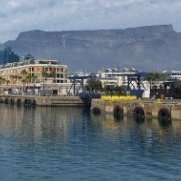Exercising your EEA rights. Child question.
-
Recently Browsing 0 members
- No registered users viewing this page.
-
Topics
-
-
Popular Contributors
-
-
Latest posts...
-
7
Economy Thailand Eyes Competitive Tariffs After Promising U.S. Trade Talks
Thaksin stated on Saturday what the Finance minister has already mentioned, but Thaksin gets all the praise from his followers. Thaksin lifts morale of followers as US deal is in the works with a final rate close to that of Vietnam https://x.com/ThaiExaminer/status/1946723589279162522 -
305
Report Fed-Up Nottingham Dad Moves Family to Thailand for New Life
And he think Thailand is a paradise for them? Does he have any idea of what he is doing with his childrens future?? Does he have long experience with Thailand or not! If not, STAY HOME or go to another place in EUROPE!!! -
54
-
147
What Would Make You Leave Thailand, Permanently?
The day the new tax system for foreign pensioners actually comes into force, I will be gone immediately...byebye...Vietnam is a beautiful country🤗 -
48
What Actually Makes You an “Old-Hand” in Asia?
I chose not to learn Thai because as you say I would have 4th grade - whatever that is - proficiency and could not possibly talk coherently to potential customers. So I let the Thai staff do the talking and I just held a clip board and made sage nods and gestured to tech staff. As for "Old Hand" . I have notice in my latest circle of friends a tendency to rate their status on length of time in country much like some guys rate their status by the size of their motorcycle. As for their "proficiency" in Thai; it only serves to confuse Thai restaurant staff more than simply pointing at a picture on a menu. I get by with basic "Taxi Thai" and paper and pencil in shops. I.E got to an electrical shop; draw a representation of a switch and the sun and they gave me a photoelectric switch.🫲 I let my wife do all the culture stuff and don't really have any Thai people to whom I wish to have an in depth conversation. My Thai mates in that category all speak English. -
3
Could Trump be persuaded to save Palestinians in Gaza?
No. This is what Trump has dreams about. https://www.youtube.com/watch?v=PslOp883rfI
-
-
Popular in The Pub


.thumb.jpg.3ee24d9400fb02605ea21bc13b1bf901.jpg)

.thumb.jpeg.d2d19a66404642fd9ff62d6262fd153e.jpeg)












Recommended Posts
Create an account or sign in to comment
You need to be a member in order to leave a comment
Create an account
Sign up for a new account in our community. It's easy!
Register a new accountSign in
Already have an account? Sign in here.
Sign In Now